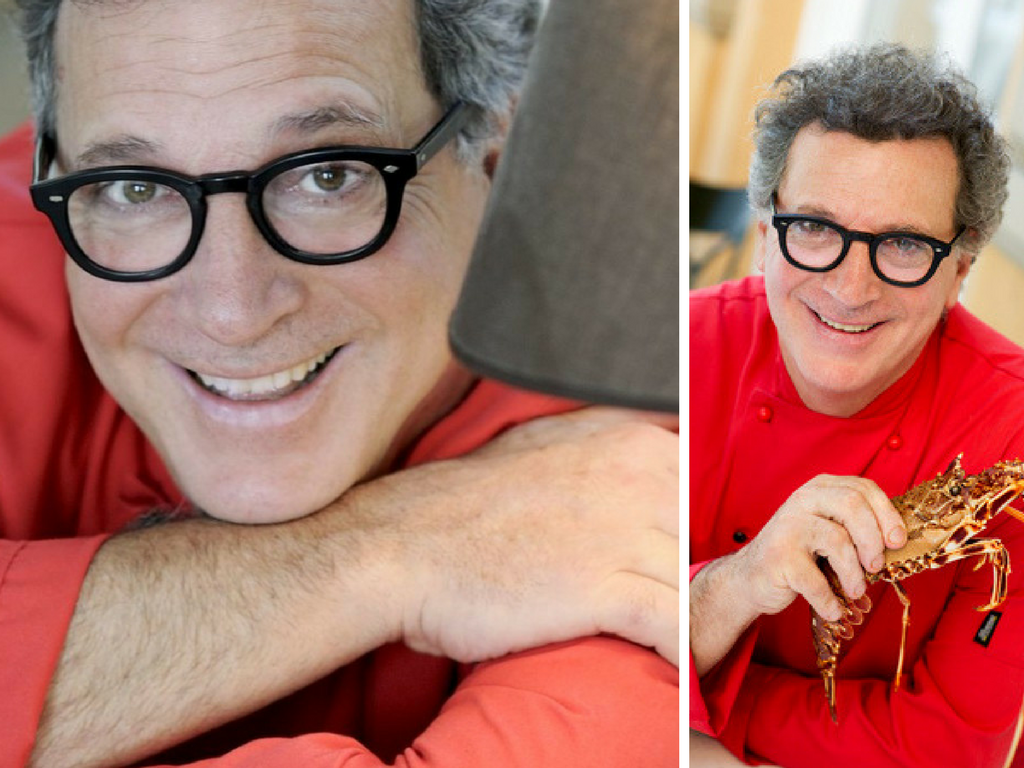Massimo Riccioli is a fantastic chef specialized in seafood, a great fan of “Made In Italy” cuisine. His headquarters La Rosetta restaurant, just a few steps from the Pantheon in Rome, has always been one of the sacred temples of fresh seafood and synonymous of absolute quality.
1) The sea is at the center of your cuisine and your search for quality and fresh ingredients has brought you to travel around the world, from Europe to America. What does seafood cuisine mean for you?
Nice question, I like it. Well, sea food for me represents my own life… If we are what we eat I’m certainly a sea element. Since forever, seafood has always been present in my family and in my kitchen thanks to my father, a Sicilian who moved to Rome, a great chef and above all a great connoisseur of Sicilian seafood recipes. His way to feel close to his distant homeland was to remember the sea and its flavors. Therefore, for me to specialize in seafood recipes and to use so much fish mean returning to my origins and constantly feeding my roots!
2) How do your dishes take inspiration from Sicily, cradle of a great cuisine based both on seafood and soil product?
3) What’s your relationship with the guest at your restaurant, La Rosetta?
Clearly I try to build a very close relationship with my guests. I try to make them feel at home, also relying on the design and architectural aspects of this place, furnished in order to recreate an atmosphere that focuses on human warmth and not on the detachment between customer and restaurant. And then of course I tend to reinforce that feeling that leads me to take care of my guests with sacredness, according to the Sicilian culture. My purpose and hope is that my guests, once left the restaurant, can mentally retrace the memories and the pleasure of La Rosetta’s sea flavors, from which they can get the greatest satisfaction. I also try to lure them in with good food… Anyway, many of my guests and customers have become friends over the years and I confess something: I listen to their advices and feedback. It’s important.
4) What’s in your opinion the strenght of made in Italy, of our food and our food culture?
I’ll try to give you a non-academic answer, extremely sincere and, let’s say, a bit critical. I think we should raise the concept of food made in Italy. I mean, it should respond to objectively high parameters. Unfortunately, over the last few years, we are experiencing a overuse this brand and, unfortunately, it undermines its meaning. The Italian cuisine is the highest point of food expression, but sometimes we are not aware of it. For example, we prepare typical dishes of our cuisine abroad with Italian products only in part, but in the end everything is proposed as “made in Italy food”. This is wrong because it ruins our made in Italy. But even here in Italy we can find a way of using Italian products away from our culture. What I mean is that nowadays it’s hard to find and recognize the true made in italy, the 100% Italian food. My philosophy is well known, I try to exalt the taste of Italian raw materials by following the preparation fees, looking for references to this specific region, to that specific place. That’s why I also like to take care of the scent of my dishes, this is the true made in Italy for me. Certainly a made in Italy made of products, but also preparation, production, culture and regional references that Italians have in the blood.
5) Speaking of Italian food, one of the phenomena we face daily in promoting our cuisine is the Italian sounding. In your opinion, is there something that’s missing in the defense of our food and that we should adopt to defend it?
This question must consider a copyright issue that obviously refers to “Italian sounding”. The Italian food heritage is unique in the world for quality and diveristy. We have the best oil and pasta, we have almost all plant species and we produce unique wines. All this is not just thanks to the raw materials because even the preparation criteria are unique and difficult to reproduce anywhere else. The Italian food culture and agri-food products are famous and appreciated everywhere but unfortunately also forged, and we know it well. I think we should create a very strict brand on Made in Italy, a kind of real and severe certification, otherwise anyone can write Made in Italy on a product and mislead the customer. So I’m thinking of certification authority with very detailed and precise rules, maybe an expensive stamp. Italy must target a high level market with its food. Quality has a price that whoever can afford will be happy to pay for. We have this quality but we need a further project that enhances the food, setting strict rules that certify the true made in Italy, otherwise counterfeiting will expand more and more.
6) What are your future plans?

